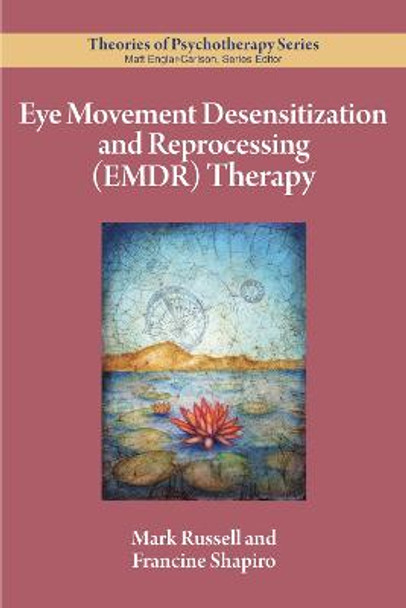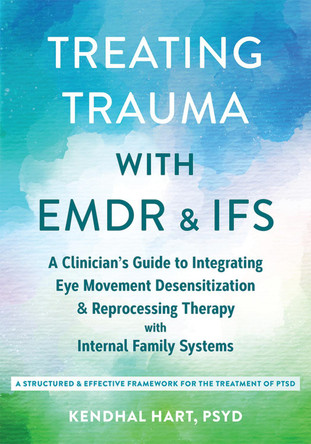Description
Eye movement desensitization and reprocessing therapy (EMDR) is a unique, empirically validated approach that is recommended by the World Health Organization as a "first line treatment for post traumatic stress disorder in adults." EMDR therapy involves working with imagery, cognitions, emotions, somatic sensations, and behaviors that are linked to a disturbing memory, as well as attending to past, current, and future-oriented experiential contributors. Unlike many psychotherapeutic treatments, EMDR does not require prolonged exposure, the direct challenging of beliefs, or numerous sessions to achieve results.
The authors describe the theory of EMDR, provide the complete EMDR therapeutic protocol, the evidence base that supports it, and examine practical issues and common challenges related to implementing EMDR in clinical practice.
About the Author
Mark C. Russell, PhD, ABPP, is a core faculty member at Antioch University, Seattle and the establishing director of the Institute of War Stress Injury, Recovery, and Social Justice. As a graduate student, Dr. Russell became Francine Shapiro's research assistant and was primarily responsible for developing the theory underlying EMDR. Dr. Russell is a retired Navy Commander and military psychologist, who became the first certified military EMDR trainer in the Department of Defense, and organized a series of just-in-time EMDR trainings for over 265 mental health providers in response to a growing military mental health crisis. Dr. Russell has authored over 13 articles and 6 book chapters on EMDR. He was awarded the Distinguished Psychologist Award by the Washington State Psychological Association for his sustained effort to transform military mental healthcare including advocating for EMDR trainings and treatment access, as well as the 2018 Outstanding Service in the Field of Trauma Psychology by APA Division 56 Trauma Psychology.
Francine Shapiro, PhD, the originator and developer of eye movement desensitization and reprocessing (EMDR) therapy, was Senior Research Fellow Emeritus at the Mental Research Institute in Palo Alto, California, and Executive Director of the EMDR Institute in Watsonville, California. She founded and was President Emeritus of the Trauma Recovery/EMDR Humanitarian Assistance Programs, a non-profit organization that coordinates disaster response and pro bono trainings worldwide. She received numerous awards, and served as advisor to a wide variety of trauma treatment and outreach organizations and journals, and she wrote and coauthored more than 90 articles, chapters, and books about EMDR.
Reviews
This delightfully concise book offers a highly readable and scholarly overview of the history, theory, cultural adaptations, and standard procedures for all eight phases of the EMDR approach to psychotherapy. Russell and Shapiro touch on controversies involving skeptics, the overly zealous, and proprietary professional associations with careful discussions of what the research illuminates and still needs to examine, along with practical suggestions for the future. -- Andrew M. Leeds, PhD, Director of Training, Sonoma Psychotherapy Training Institute, Santa Rosa, CA
Book Information
ISBN 9781433836596
Author Mark C. Russell
Format Paperback
Page Count 207
Imprint American Psychological Association
Publisher American Psychological Association






